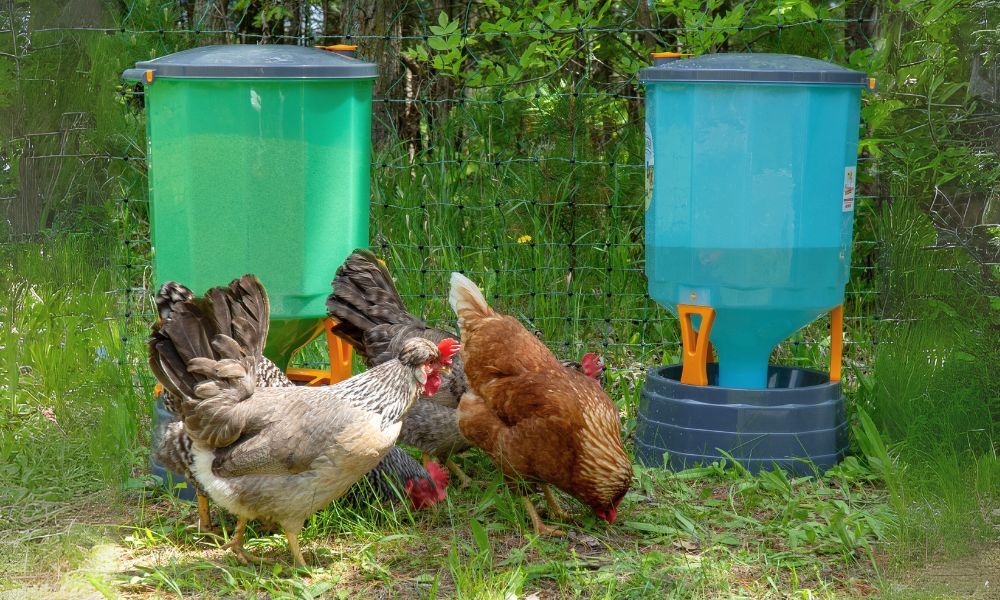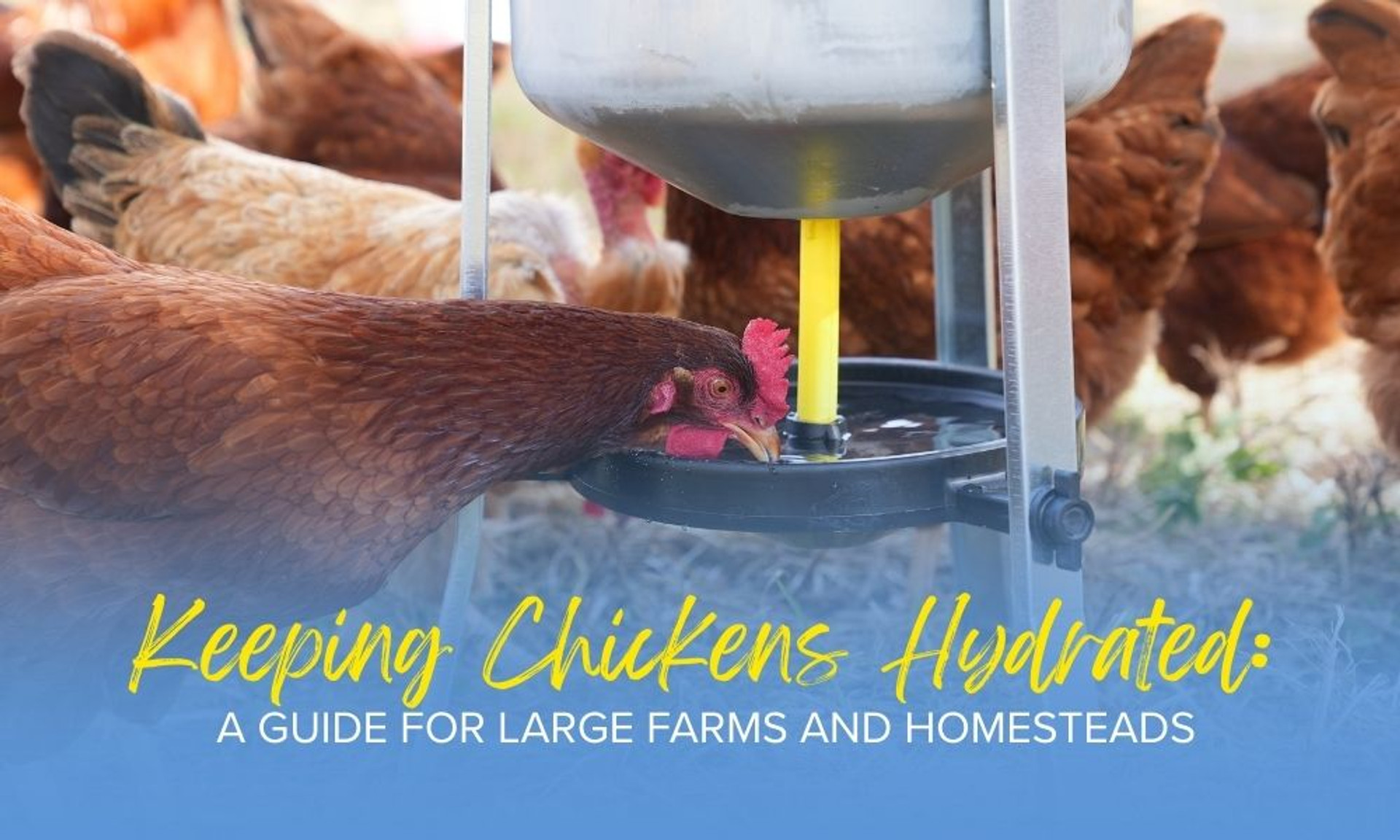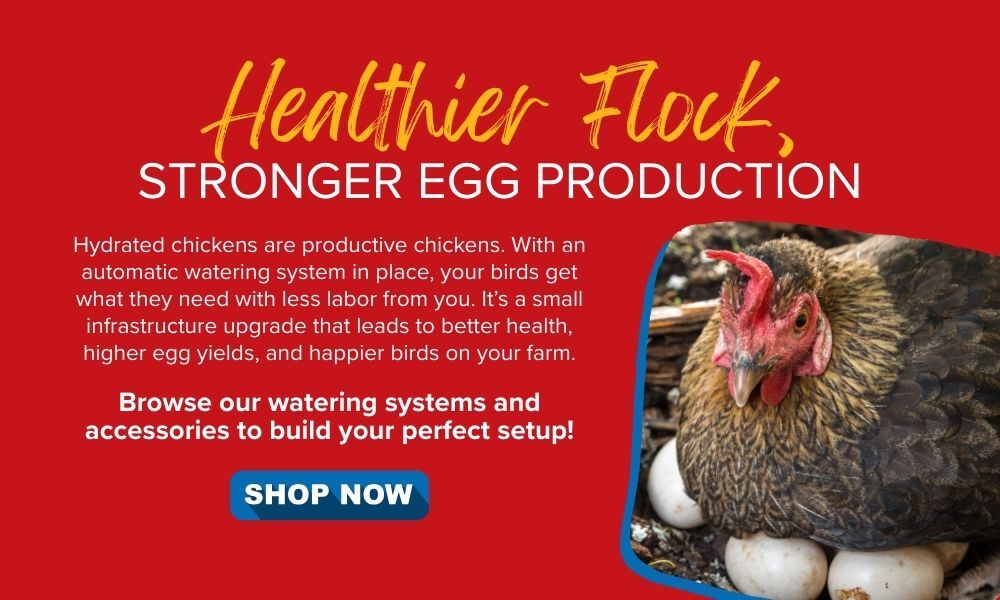Keeping Chickens Hydrated: A Guide for Large Farms and Homesteads
Water may seem like a simple part of poultry care, but it plays a critical role in the health and productivity of your flock. One of the most common questions we hear is: "Why did my chickens stop laying eggs?" A surprising yet crucial answer is water. If your chickens run out of water—especially during hot weather—they can become stressed and stop laying for up to two weeks. That’s why ensuring constant access to clean, fresh water is one of the most important things you can do for your birds.

The Smart Solution: Automatic Watering Systems
For large-scale flocks or busy homesteads, installing an automatic watering system is a game-changer. Not only does it reduce daily chores, but it also guarantees your flock stays hydrated around the clock. Here’s what you need to know before setting one up:
1. Choose Your Water Source: Plumbing or Reservoir?
- Plumbed Systems connect directly to your home water supply or a hose. Keep in mind: most poultry nipples and drinker cups can’t handle high pressure. Use a pressure regulator to reduce PSI to around 5–10.
- Reservoir or Gravity-Fed Systems act like mini water towers. Place a tank 3–5 feet above your drinkers for natural flow. You can fill it manually or attach a float valve for hands-free refills.
2. Regulate Water Pressure Too much or too little pressure can affect how well your system works:
- Low pressure? Water won’t flow when nipples or cups are activated.
- High pressure? Drinkers might leak or spray, creating soggy bedding.
3. Select Your Water Lines: PVC vs. Tubing
- PVC piping is strong and long-lasting but requires more setup—priming, gluing, and careful sealing.
- Flexible tubing is easier to handle and ideal for adjustable layouts. Just be sure to use tight fittings and hose clamps to prevent leaks.
4. Pick the Right Drinkers: Nipples or Cups?
- Nipples are highly sanitary and low-maintenance but can drip if overused.
- Cups are easier for birds to drink from and may be preferred by some keepers. They need more frequent cleaning due to dirt and debris.
Tip: You can even use chicken nipple waterers for ducks, helping keep things dry and simplified across your flock.
5. Don’t Forget Drainage Every watering system should include a drain:
- In summer, draining flushes hot water from sun-heated lines.
- In winter, it lets you fully empty the system to prevent frozen, cracked fittings.


